C++智能指针解决了以下问题:
- 野指针和空指针
- 对象重复释放
- 内存泄露
- new和delete不匹配
C++目前有3种智能指针(unique_ptr, shared_ptr, weak_ptr),以前的auto_ptr现在已经不怎么使用了。
unique_ptr: 一次只能有一个unique_ptr指向某对象,需用用move,不需要赋值,最好让自生自灭
shared_ptr: 允许多个shared_ptr同时指向某对象。可能会降低一点效率。需要注意的是shared_ptr指向的对象的析构函数不应该消耗很长时间,否则可能会造成线程堵塞。
weak_ptr: 用来解决shared_ptr的循环引用问题。用来观察所指向对象是否仍然存活。
下面内容来自链接:
https://www.bilibili.com/video/BV1fK411H7CA/?spm_id_from=333.788.recommend_more_video.12&vd_source=607d67fdd1e8f6a823c13fec42a1374d
std::unique_ptr的用法:
std::unique_ptr<Entity> e1 = new Entity(); //not assignable
std::unique_ptr<Entity> e1(new Entity()); //OK
std::unique_ptr<Entity> e1 = std::make_unique<Entity>(); //preferred
auto e2 = std::make_unique<Entity>(); //preferred
std::unique_ptr<Entity> e2 = e1; //non-copyable
std::unique_ptr<Entity> e2 = std::move(e1); //movable, transfer ownership
foo(std::move(e1)); //transfer ownership
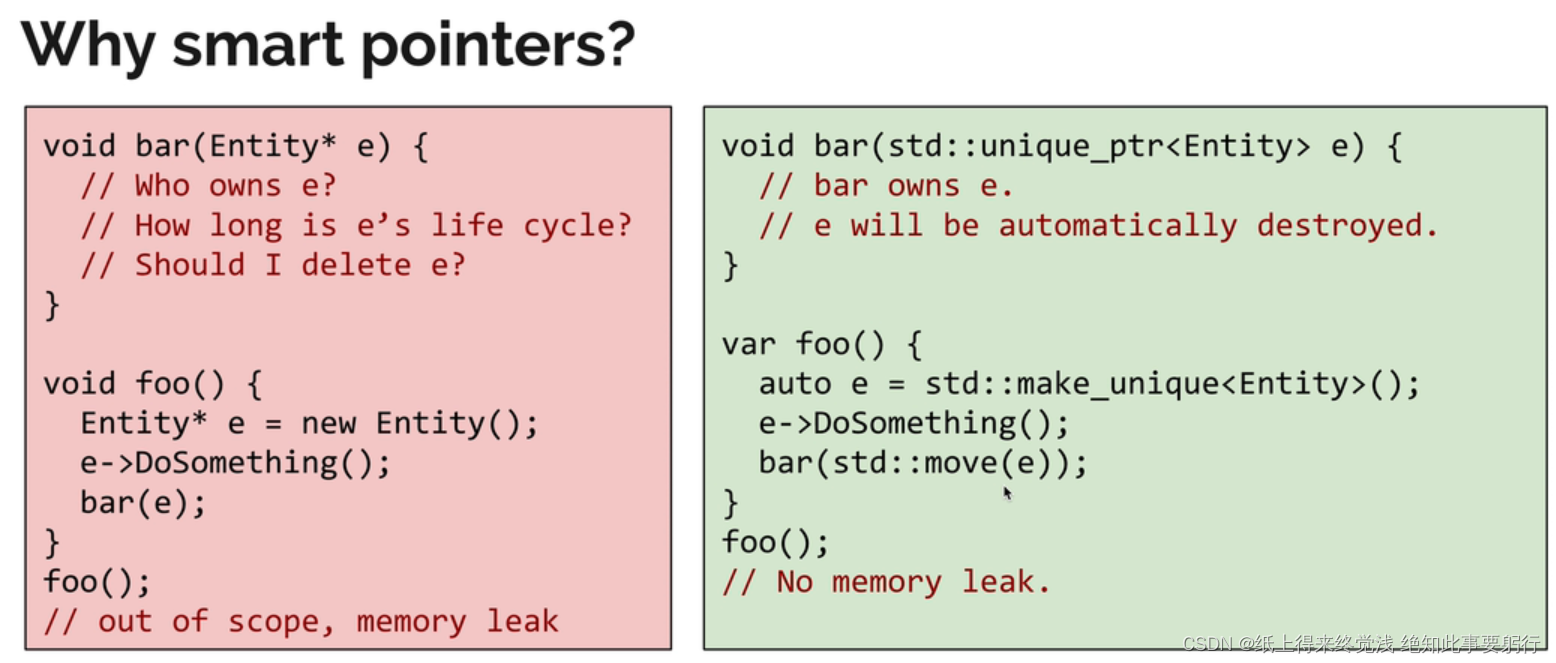
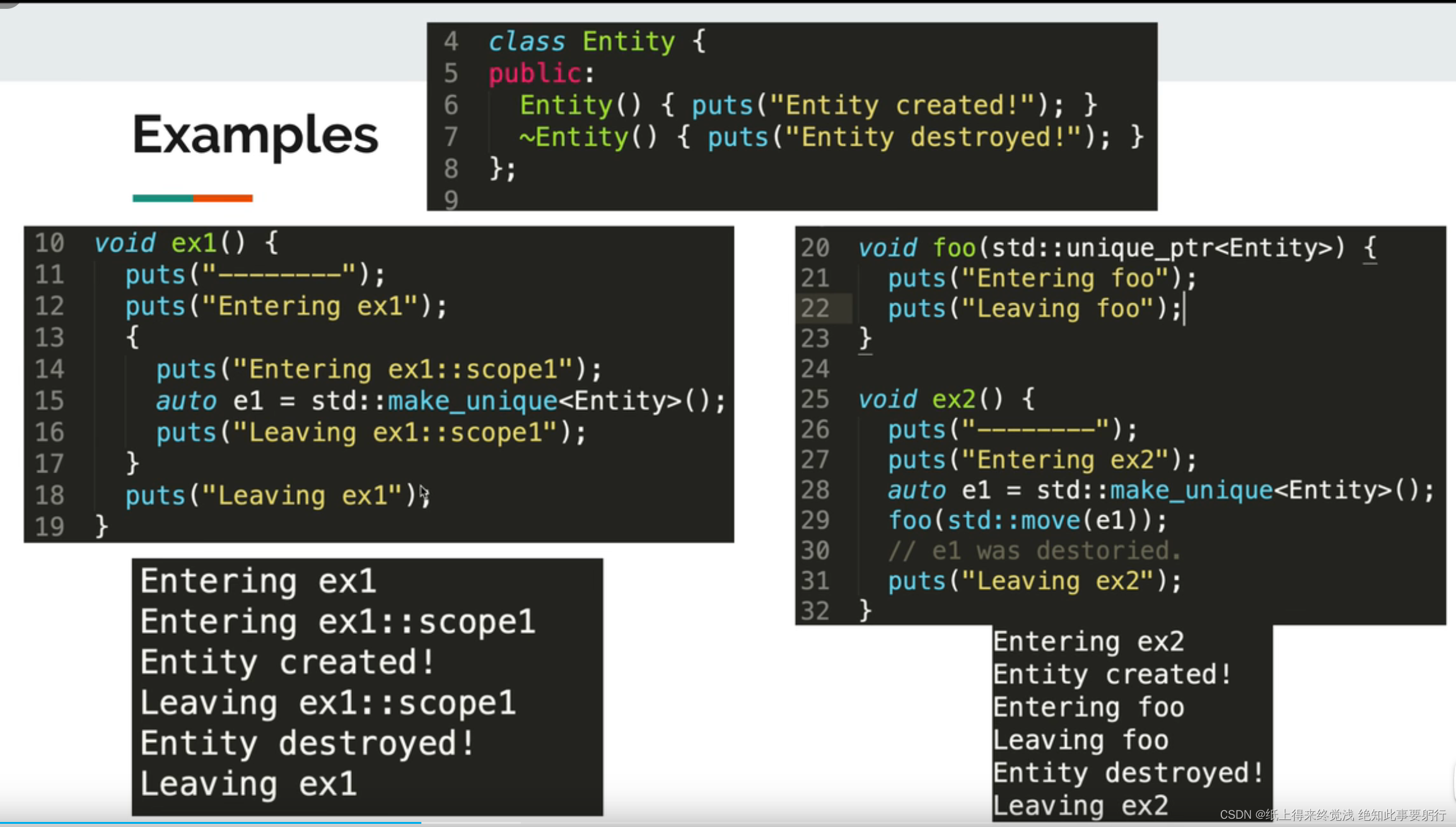
从下图可以看出任何时候只有一个对象可以拥有unique_ptr。
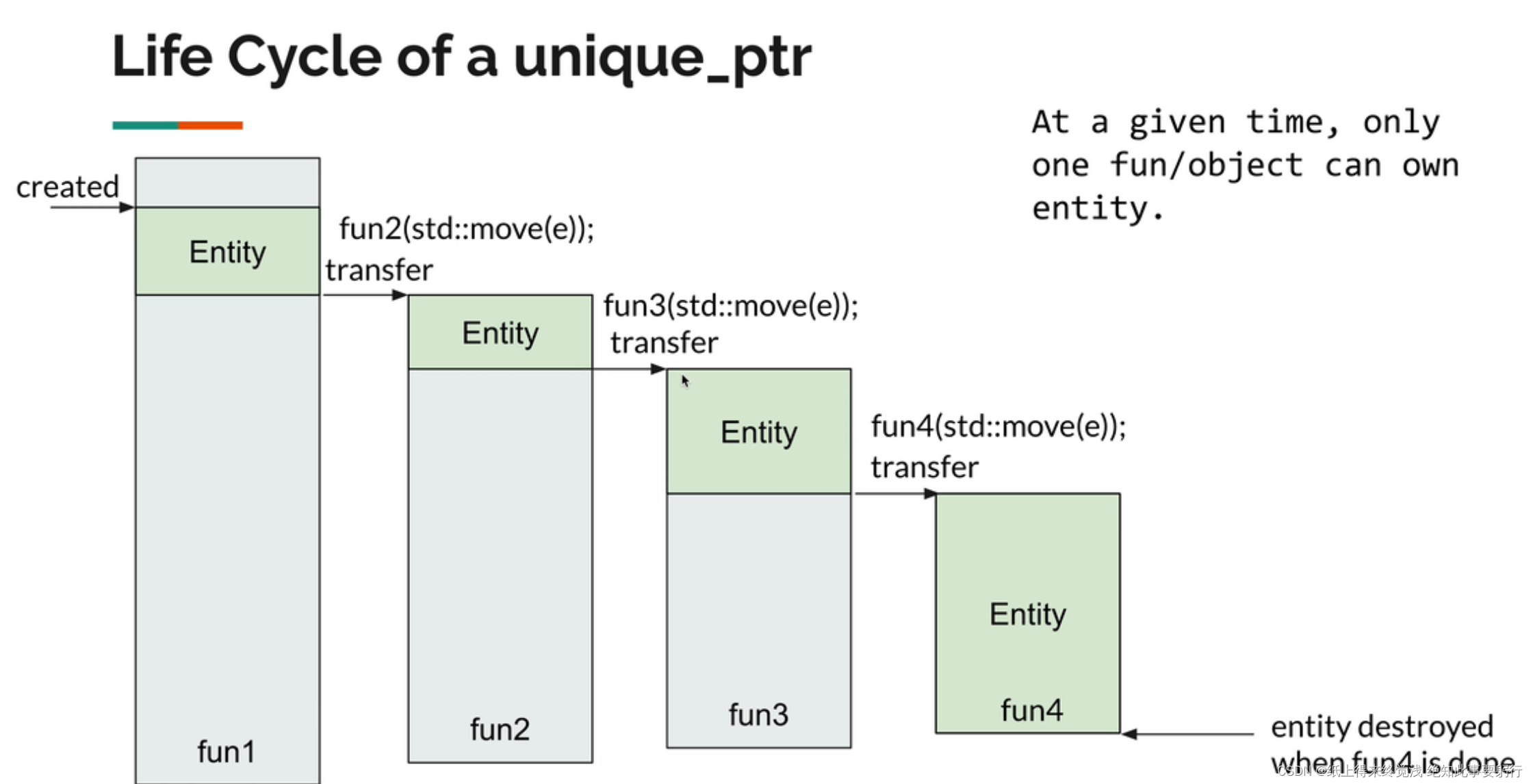
对于shared_ptr,我们也可以用move来transfer ownership,此时引用计数保持不变。否则如果再有一个对象用到shared_ptr,引用计数加1。
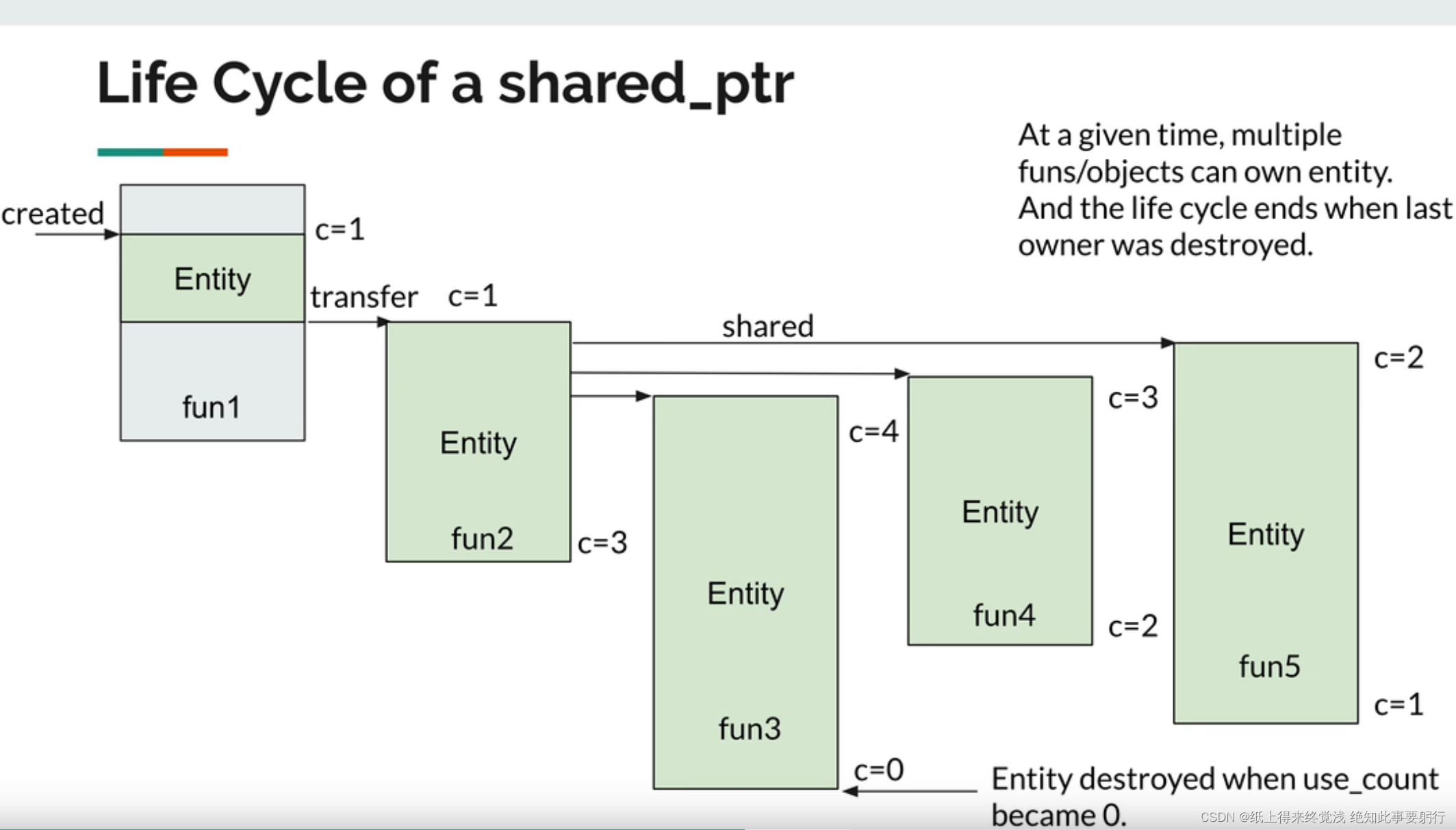
shared_ptr的用法:
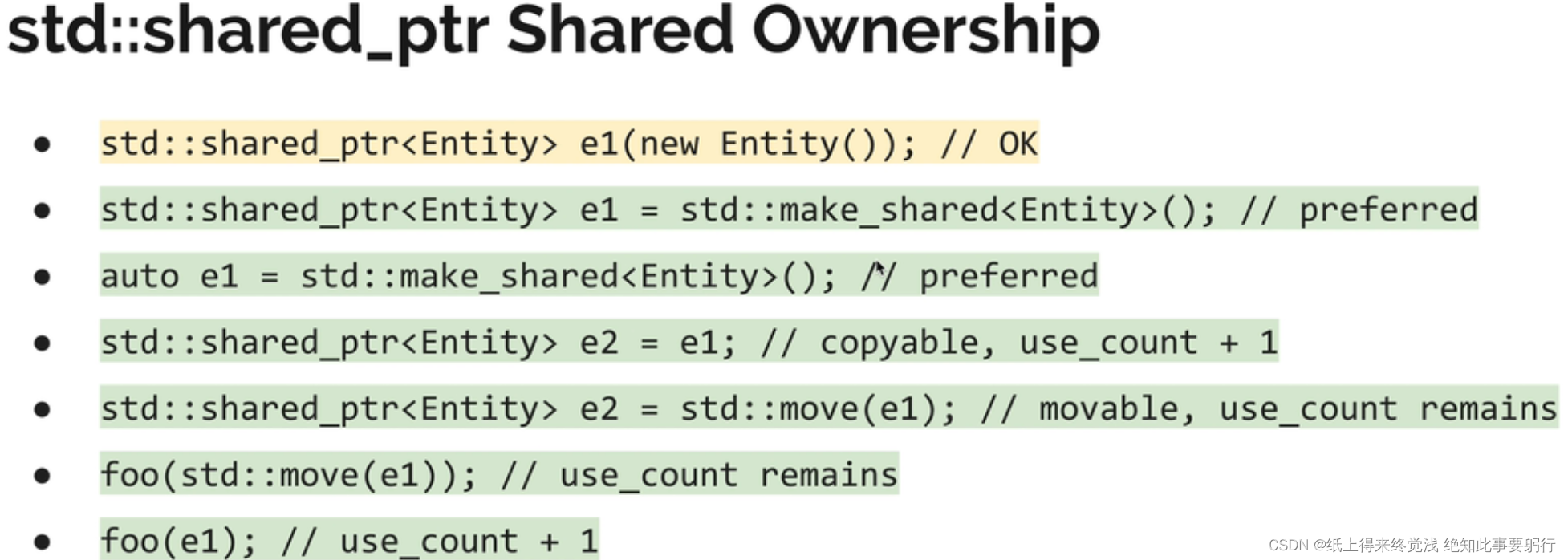
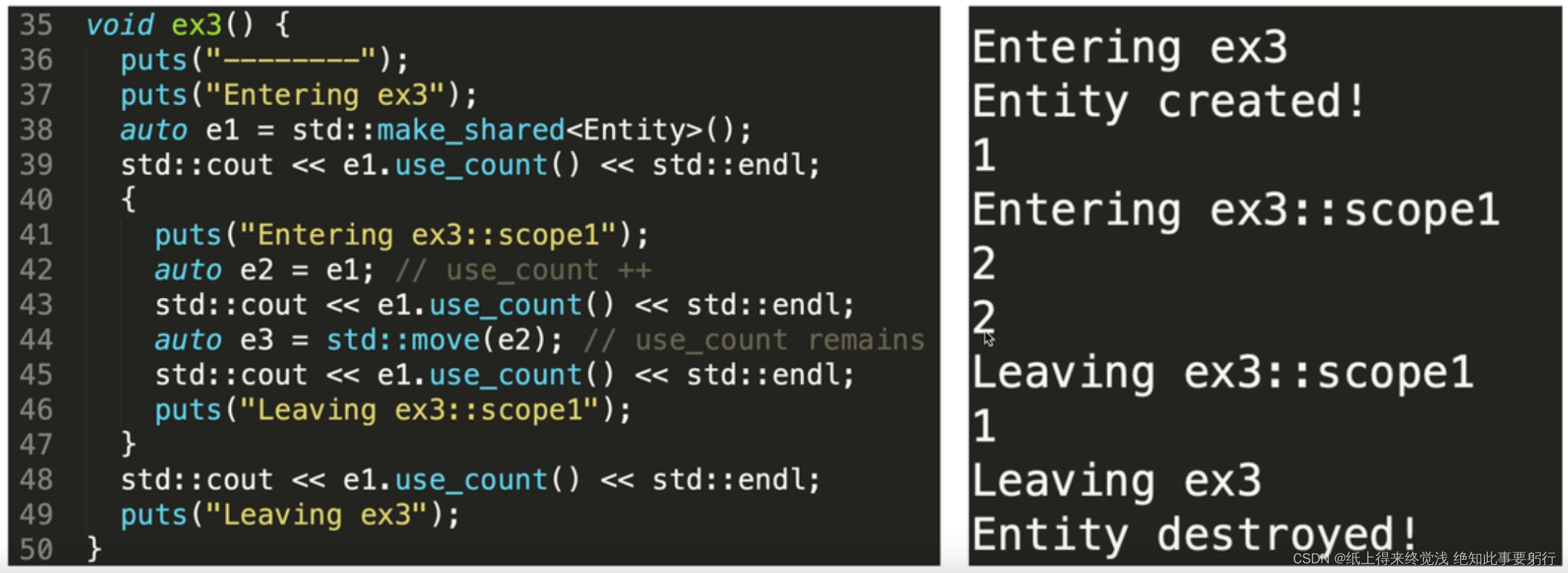
对于weak_ptr,注意要么没有ownership,要么只有临时的ownership
- 它在使用其指向的对象前必须被转换为std::shared_ptr
- 模拟临时的ownership,如果对象还存在就访问,如果对象不存在了也没关系
- 推荐用法为
auto e1 = std::make_shared<Entity>(); //首先必须有一个shared_ptr, e1.use_count()=1
std::weak_ptr<Entity> ew = e1; //注意ew是从shared_ptr e1构建的,注意ew并没有ownership,此时e1.use_count()仍然为1.
if (std::shared_ptr<Entity> e2 = ew.lock()) //看ew指向的对象是不是还存在,如果存在的话,将ew转换为一个shared_ptr e2,此时e2.use_count=2
e2->DoSomething();
具体例子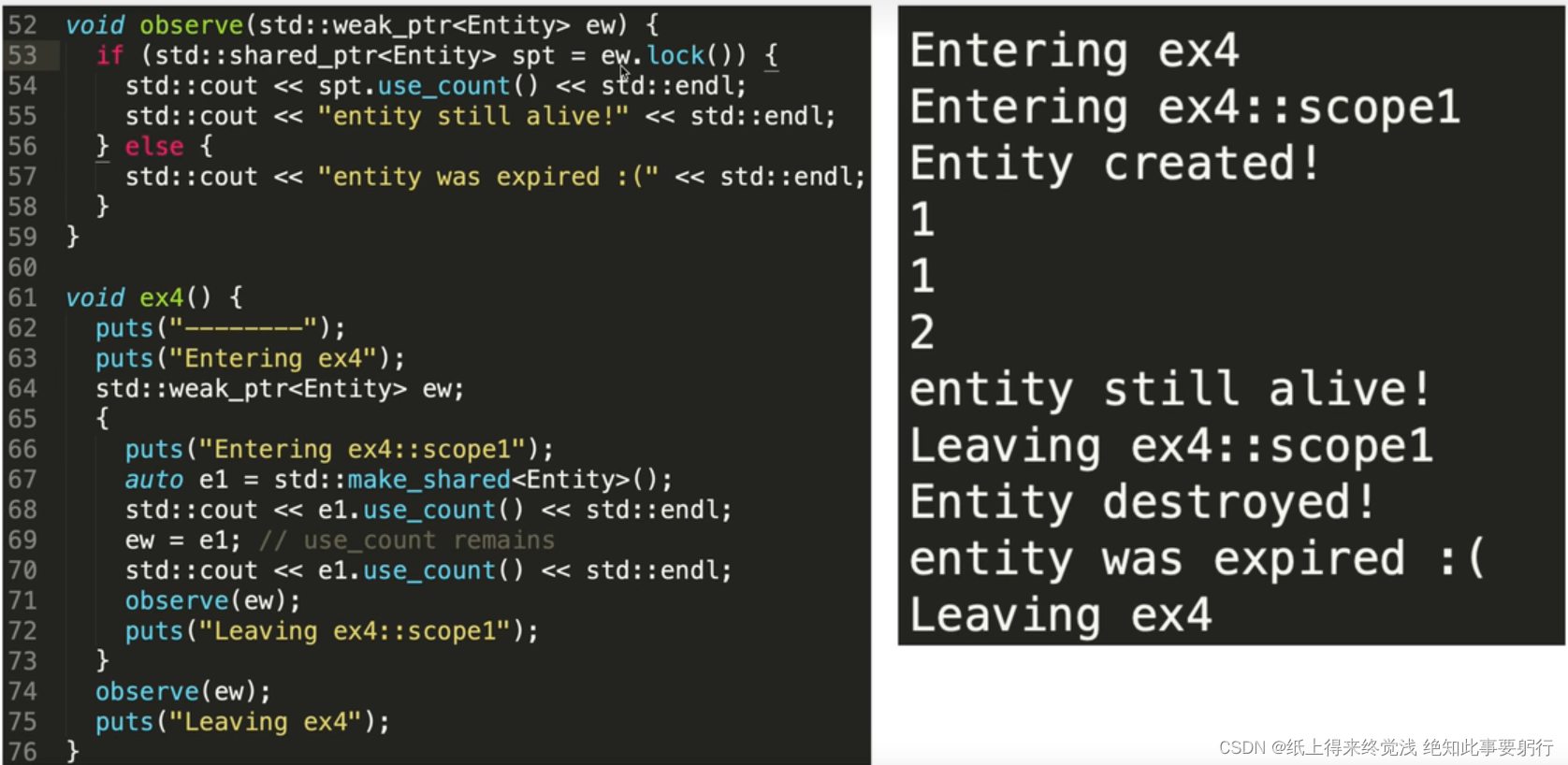
结论:
- 用了smart pointer之后不需要用new/delete了
- 尽量用std::unique_ptr来替代std::shared_ptr
- 尽量用move std::shared_ptr